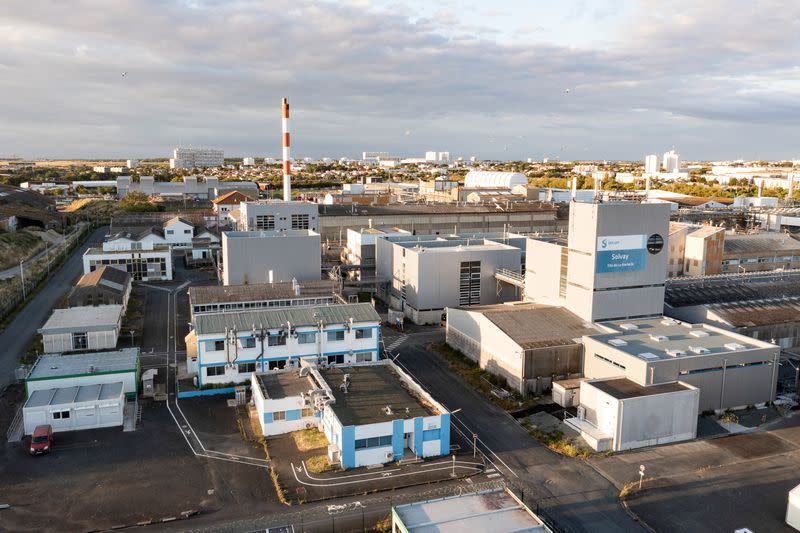Recycling to kick in as long-term solution to EU rare earths challenge

By Eric Onstad
LONDON (Reuters) - EU companies are gearing up to take advantage of the huge potential for recycling to supply critical rare earths for the bloc's green transition, but it will take time before there is enough supply of old EVs and wind turbines to process.
The EU will struggle to meet ambitious goals for rare earths in new legislation designed to boost domestic output of critical minerals and reduce dependence on China.
Under the Critical Raw Materials Act that entered into force last month, the bloc has set a target that recycling should meet 25% of EU demand for critical minerals by 2030, including rare earths.
Today, less than 1% of rare earths consumed in the EU are recycled.
The 25% target is not due to be met according to a Reuters analysis, but in the longer term, the outlook is strong for the bloc to furnish a large portion of the rare earths needed for electric vehicles and wind turbines from salvaging and re-processing them.
"Today you have magnets that are leaving Europe every day because there is no possibility to recycle them here," said Frédéric Carencotte, the founder of French start-up Carester.
The company is already collecting old magnets to be ready when its plant is due to go into production in 2026.
Initially, it plans to process 2,000 tons a year of old permanent magnets and produce rare earth oxides.
At first it will also process concentrate from mines until enough old EVs and wind turbines are scrapped to boost supply of old magnets.
Another key input will be so-called "swarfs", leftovers when blocks of new permanent magnets are cut into specific shapes, which can total up to a fifth of magnet production.
Germany's privately-held Heraeus Remloy launched a plant last month to recycle old electronic devices into a magnetic alloy powder that can be used to produce permanent magnets.
The output from Carester would meet about 6% the EU's rare earth oxides demand by 2030, Heraeus would meet about 1% of demand for rare earth metals and alloys while two other projects would satisfy 4% of magnet demand, the Reuters analysis found.
It is not viable to recycle every magnet, because by 2030 the EU will have about 1.1 billion end-of-life devices containing magnets, each of which only contain about 30 grams of magnets on average, said Ryan Castilloux at consultancy Adamas Intelligence.
The EU should focus on mandating the recycling of magnets from EVs and wind turbines, which will comprise the bulk of magnets coming to end-of-life in the future, he added.
"Extended producer responsibility is seen as a key solution, but challenges like high recycling costs and inadequate collection systems exist," said Bernd Schaefer, CEO of EIT RawMaterials, an EU-funded group leading a sector alliance.
HyProMag in Germany and MagREEsource in France also aim to recycle magnets, but plan to use a so-called "short-loop" technology to re-manufacture them into new magnets.
MagREEsource, a spin-off from France's CNRS scientific research institute, is due to open a plant this month while HyProMag aims to launch production in mid-2025.
France's state-owned nuclear fuel specialist Orano leads the Magnolia Project, which seeks to recycle and manufacture permanent magnets for EVs with 25% recycled content. It plans to launch a pilot plant this year.
(Reporting by Eric Onstad; editing by Veronica Brown and Claudia Parsons)

 Yahoo Finance
Yahoo Finance 